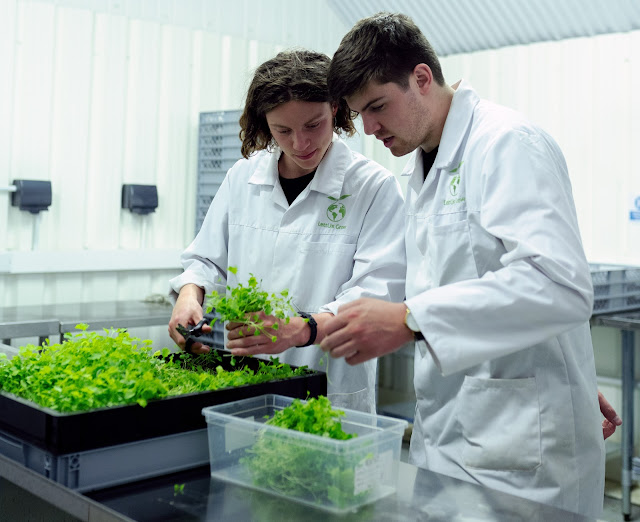Genetically Modified Crops: Is the food safe?
Genetically
modified crops are plants used in agriculture, the DNA of which has been
modified using genetic engineering methods. It aims to introduce a new
character to the plant which does not occur naturally in the species. For food
crops include resistance to certain pests, diseases, environmental conditions,
reduction of spoilage resistance to chemical treatments.
This also
includes non-food crops in the production of pharmaceutical agents, bio-fuels,
and other industrial goods.
Farmers around the world adopted GM technology. The major crops are soybean, maize, canola, and cotton with herbicide and insect resistance. Adopting to this has reduced chemical pesticides and increases the crop yield. The currently available food derived from GM crops poses no greater risk to humans. Anyhow the legal and regulatory status of GM foods varies by country, with nations banning or restricting them or permitting with some restriction.
WHY GENETICALLY MODIFIED CROPS?
Genetically modified crops provide yields, rich nutritional value, longer shelf life, and resistance to drought, pests or insects. This type of crop would get higher yield in a shorter interval of period.
GENETIC ENGINEERING MODIFICATION METHODS
Genes in
crops added or removed using this modification method
- Gene Guns :- Coating or Firing the heavy metal with micro-projectile into the cells using mechanical force.
- Electroporation:- Electrical field is applied to cells to increase the permeability of the cells membrane to transform by introducing new coding DNA. This works by passing high volts across a distance of one to two-millimetre distance. This process is a more effective chemical transformation.
- Micro-injection:- Directly inject foreign DNA into cells
TYPES OF MODIFICATION
- Transgenic:- Genes inserted into them that are derived from other species. The derived genes can be from the same kingdom (plant to plant) or different kingdom(plant to animal).
- Cisgenic:-Made using the genes available with the same species or closely related.
- Subgenic:- Uses gene function to alter the genetic makeup of a plant without incorporating genes from other plants.
- Multi character integration- uses several traits that may be integrated into a new crop.
- For years, the dispute over the use of foods and other goods derived from genetically modified crops instead of conventional crops. Many regulatory organizations and scientists say that this would affect the health of humans and also the environment.
- Using genetically modified food in daily life would cause infection and allergy in humans, animals. This type of crops depletes mineral from soil.
- Many developed and developing countries do not show interest in genetically modified crops as they could be potentially harmful. On the other side, the genetically modified crops improves the economy of the developed and developing countries.
- The implementation of genetically modified crops is difficult in many countries because of the regulatory and lawsuits of the countries
Some Controversial Studies
COMPANIES
MAKING GENETICALLY ENGINEERED CROPS
Genetically
engineered crops have been made by a small number of multinational companies.
Patent the engineered seed for their business monopoly
Some companies
are:-
POTENTIAL
RISKS OF GENETICALLY MODIFIED CROPS
Every technology,
there are potential risk
- Introducing allergens and other anti-nutritional factors in food unintentionally which may be dangerous.
- Cultivated crops are moving into trans-genes with wild relatives of likelihood.
- GM crops are evolved for toxin resistance of pests.
- Genetically engineered crops are dangerous to wildlife and the environment.
- The technology caused risk are unpreventable.
TRAITS OF
GENETICALLY ENGINEERED CROPS
- Extended life- Resistance to survive
- Improved nutritional value
- Edible oil- produce high level of oil
- Vitamins enrichment
- Toxin Reduction
- Pest Resistance
What’s Next?
The current
uncertainty over Genetically Engineered remains clear. The technology
development created the potential to create economically important crop varieties.
But this would also destroy or vanish the conventional crop varieties which would
not be brought back. Whatever policies and regulations may bring back the GM
crops. Finally, given the importance of the food we eat, taking food Genetically
Engineered are warned.
Leave your
opinion and Comments










Wow amazing ��
ReplyDeleteNice
ReplyDelete